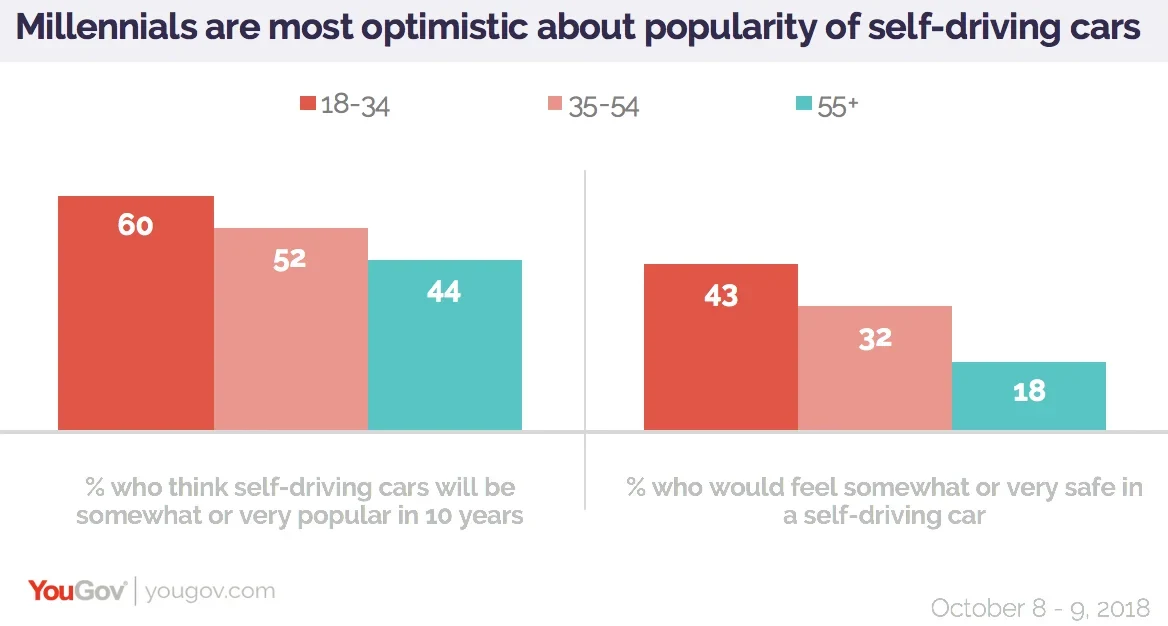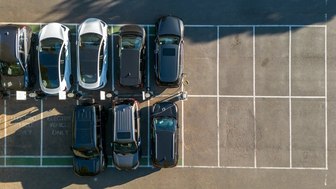Over half (55%) of Americans say that the car’s country of origin is somewhat or very important to them
For many people, cars are an integral part of their daily lives. Recent research suggests that Americans spend an average of 17,600 minutes (about 293 hours) behind the wheel each year. So what are people looking for when it comes to purchasing or leasing a car?
To start, Americans largely prefer purchasing (79%) their cars as opposed to leasing (4%) them. A majority (82%) have bought at least one car for personal use, while only 31% have ever leased one or more cars.
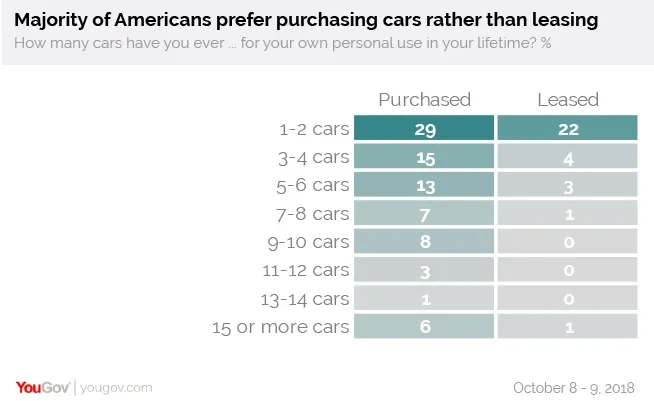
When it comes to what exactly they look for in a car, there are many factors to consider. Over half (55%) of Americans say that the car’s country of origin is somewhat or very important to them. Americans over 55 are especially likely (63%) to say this, while millennials tend to care less (41%) about where the car was made.
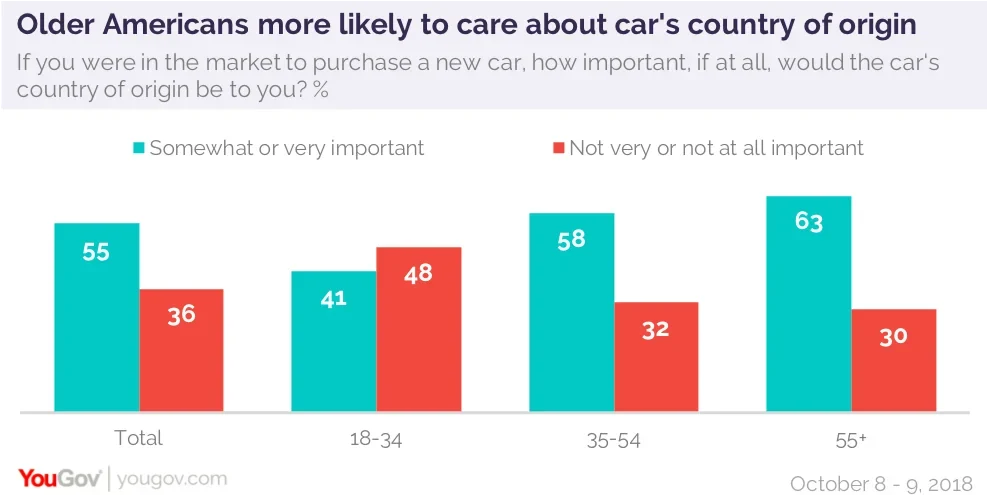
Roughly one-third (32%) of Americans say that the country that makes the most reliable cars is the USA. Coming in second was Japan (26%), which was especially popular among people with 4-year (41%) and post-grad degrees (41%), as well as $80K+ income earners (34%), and people who live in the west (32%).
Brand loyalty is also something to consider. About one-third (34%) of Americans say that if they were in the market for a new car, they would want it to be from the same manufacturer as their current car. Only 10% would turn to a different manufacturer, while 38% say they would have no preference. Americans making $80,000 or more annually are especially likely (41%) to say they would want their new car to be from the same manufacturer.
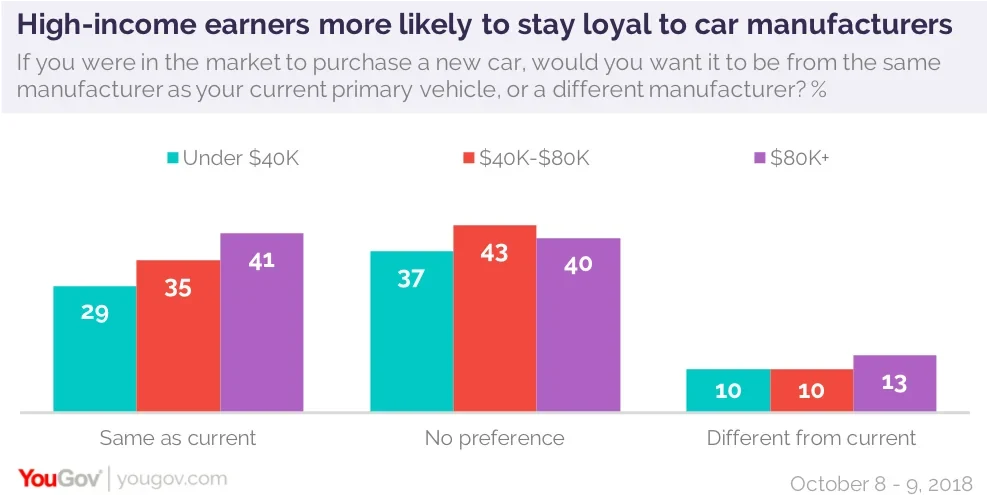
But the most important factors for most people are price (61%) and reliability (51%). These were the most popular answers when people were asked which two characteristics are most important to them when they considered buying a new car. Safety (31%), style (15%), and environmental impact (10%) are other options. Women (40%) are nearly twice as likely as men (22%) to prioritize safety. Parents of children under the age of 18 (36%) are also more likely than most to prioritize safety, as are people who earned more than $80K per year (37%). High-income earners are also more likely than the general population (15%) to prioritize style – one in five (20%) selected this as a top characteristic.
It may only be a matter of time before there’s another characteristic to consider: self-driving capabilities. About half (51%) of people say that they believe self-driving cars will be somewhat or very popular in 10 years. But only 30% of people say they would feel safe in an autonomous/self-driving car. There are significant discrepancies between age groups on this topic. Millennials are more likely (60%) to say self-driving cars will be popular, and that they would feel safe (43%) in one. Meanwhile, Baby Boomers were split, with 44% saying they think these cars will be popular, and 40% saying they won’t be popular. A majority of this group (76%) also says they would feel “not very” or “not at all” safe in a self-driving car.
